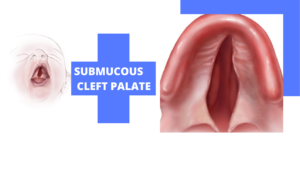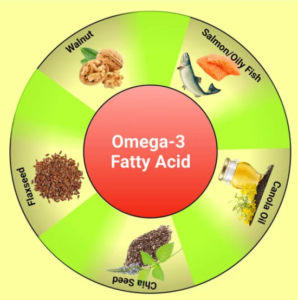Omega-3 fatty acids play a very important role in the nutrients needed to maintain overall health. As people are getting to know about it, its popularity is increasing day-by-day. These fats play a very important role in brain functioning, heart health & reducing inflammation. But what exactly is this omega-3 and why is it so needed? Let’s know, in this article, which will give you very important information about it.
Table of Contents
What are Omega-3 Fatty Acids?
Omega-3 fatty acids are a group of polyunsaturated fats that are important for maintaining overall health. The human body cannot make them on its own, so they must be taken through food or supplements.
Types of Omega-3 Fatty Acids
- EPA (Eicosapentaenoic Acid): Found in fatty fish, it’s known for its anti-inflammatory properties.
- DHA (Docosahexaenoic Acid): Also found in fish, DHA supports brain health and vision.
- ALA (Alpha-Linolenic Acid): Found in plant-based sources like flaxseeds and walnuts, ALA must be converted into EPA and DHA in the body.
Health Benefits of Omega-3 Fatty Acids
1. Supporting Heart Health
Omega-3s decreases the risk of heart disease by lowering triglycerides, decreasing blood pressure, and stopping the buildup of arterial plaque. Research has shown that eating foods rich in omega-3s improves cardiovascular health.
2. Boosting Brain Function
DHA, an important part of omega-3s, is required for brain development and cognitive function. It is also very important during pregnancy and childhood for proper neural development.
3. Reducing Inflammation

Chronic inflammation is connected to many diseases, including arthritis and cancer. Omega-3s have powerful anti-inflammatory properties that can help reduce symptoms and improve overall health.
4. Enhancing Eye Health
DHA is an important structural part of the retina. Regular intake of omega-3s can prevent macular degeneration and other eye-related issues, maintaining clear and healthy vision.
5. Supporting Mental Health
Studies shows that omega-3s can decrease symptoms of depression and anxiety. They are also being studied for their role in managing conditions like ADHD and bipolar disorder.
6. Improving Skin Health
Omega-3s keeps the skin hydrated by which dryness and redness decreases. They also help to fight with pimples and protect against sun damage.
7. Promoting Prenatal Development
Omega-3 helps to the development of the fetal brain, eyes, and nervous system during pregnancy. They’re also helpful for the mother, reducing the risk of preterm labor and postpartum depression.
Best Dietary Sources of Omega-3 Fatty Acids
Animal-Based Sources
- Fatty Fish: Salmon, mackerel, sardines, and tuna are rich in EPA and DHA.
- Fish Oil: A concentrated source of omega-3s.
- Eggs: Some eggs are fortified with omega-3s.

Plant-Based Sources
- Flaxseeds: High in ALA and can be mixed with smoothies or baked goods.
- Chia Seeds: Easy to add to puddings or oatmeal.
- Walnuts: A crunchy and nutrient-rich snack.
- Hemp Seeds: A versatile ingredient for salads and snacks.
Supplements
If your daily omega-3 needs are not met by food, fish oil or algal oil may be a better option.
How to Incorporate Omega-3 into Your Diet
Easy Meal Ideas
- Breakfast: Add chia seeds to your smoothie or sprinkle flaxseeds on yogurt.
- Lunch: Include salmon in your salad or sandwich.
- Dinner: Grill mackerel with a side of roasted vegetables.
- Snacks: Munch on a handful of walnuts or make a chia seed pudding.

Cooking Tips
- Avoid overheating omega-3-rich oils to preserve their nutritional value.
- Store flaxseed oil in a cool, dark place to prevent it from going rancid.
Conclusion
Recap of Benefits
From promoting heart and brain health to improving skin and reducing inflammation, omega-3 fatty acids are an important part of a healthy diet.
Call to Action
Add more omega-3-rich foods into your daily diet or consider a supplement if required. Taking this step can help to improve your overall health.
FAQs about Omega-3 Fatty Acids
While omega-3s are not a magic bullet, they can support weight loss by reducing inflammation and promoting a feeling of fullness.
High doses can cause stomach upset or a fishy aftertaste. Stick to the recommended dosage and consult your doctor.
Most experts recommend 250-500 mg of combined EPA and DHA daily for adults.
Yes, omega-3s are highly beneficial during pregnancy. Choose high-quality supplements and consult your healthcare provider.
Omega-3s reduce inflammation, while omega-6s can promote inflammation if consumed in excess. A balance of both is essential for health.
Plant-based sources like ALA are beneficial, but they’re not as easily converted to EPA and DHA as fish-based sources. Including a mix of both is ideal.

Submucous Cleft Palate
Introduction Submucous cleft palate is a congenital condition characterized by a subtle abnormality in the structure of the palate. Unlike a typical cleft palate where there is a visible opening in the roof of the

Why Potato Skins Deserve a Spot in Your Diet for Better Health?
Potato skins may be overlooked, but they pack a punch when it comes to nutrition. Loaded with fiber, vitamins, and antioxidants, they offer a wide range of health benefits, from digestive support to better skin

Salmonella enterica: Understanding the Six Subspecies
Salmonella enterica, formerly known as Salmonella choleraesuis, is a Gram-negative bacterium characterized by its rod-shaped structure and flagellated mobility. Belonging to the genus Salmonella, it encompasses six distinct subspecies, each with unique characteristics and significance.

Breaking the Silence: Bold Steps in Breast Cancer Awareness
Breast cancer, a formidable adversary that affects millions of lives worldwide, demands not just attention but concerted efforts towards awareness. In this article, we delve into the depths of breast cancer awareness, uncovering bold steps



